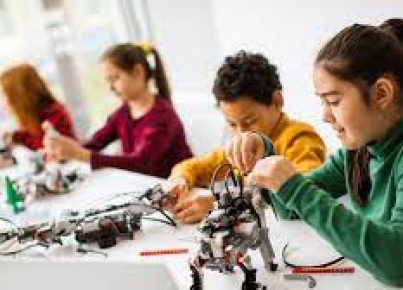Introduction
Science is a fascinating field with endless possibilities and opportunities for learning and growth. Encouraging children to maintain an interest in science is vital for their intellectual development and future career prospects. However, it is also important to ensure that science education and discussions are accessible and gender-inclusive. This article aims to provide tips on how to approach talking about science with kids of all genders, ensuring equal opportunity for everyone.
1. Avoid Stereotypes and Encourage Curiosity
Avoid making gender-specific comments or assumptions when discussing scientific topics or activities with children. Instead, focus on the child’s interests and passions and encourage their curiosity, regardless of their gender. Providing opportunities for kids to explore beyond traditional gender roles will foster a sense of openness and acceptance in the world of science.
2. Use Examples from Diverse Role Models
Make an effort to highlight prominent scientists from diverse backgrounds who have made significant contributions to their fields. By showcasing role models that transcend gender, race, and other demographics, it will help children understand that science is open for everyone to explore, no matter their background or identity.
3. Choose Inclusive Science Experiments
Select science experiments that can be easily modified or adapted based on individual abilities, interests, or preferences. This ensures that all participants can engage in the activity while promoting a more inclusive environment around scientific learning.
4. Be Conscious of Language
Use inclusive language when discussing scientific topics or activities – avoid using gender-specific pronouns like “he” or “she” unless necessary. Instead, use neutral terms like “they” or “them” as these pronouns do not represent a specific gender.
5. Discuss the Importance of Diversity in Science
It’s essential to talk about the importance of diversity in scientific fields – not only from a social justice perspective but also because diverse viewpoints lead to more innovative discoveries and solutions to complex problems. Encourage children to consider the different ways that scientists from various backgrounds contribute to the world of science and the importance of breaking down barriers to access.
6. Encourage Collaboration
Promote teamwork and collaboration by designing scientific activities that require children to work together, regardless of their gender or other differences. By fostering a sense of community within the group, kids can learn to appreciate each other’s unique perspectives and come to understand that everyone has the potential to make a difference in the world of science.
Conclusion
Instilling a passion for science in children is important for their personal well-being, as well as for society as a whole. By ensuring that this love for science is built on principles of inclusivity, we can help shape a world where everyone has an equal opportunity to engage in scientific inquiry and enjoy the wonders this field offers. Be intentional with your language, actively seek diverse examples and make activities accessible for all as you talk about science with kids, and help build a more inclusive scientific community.




